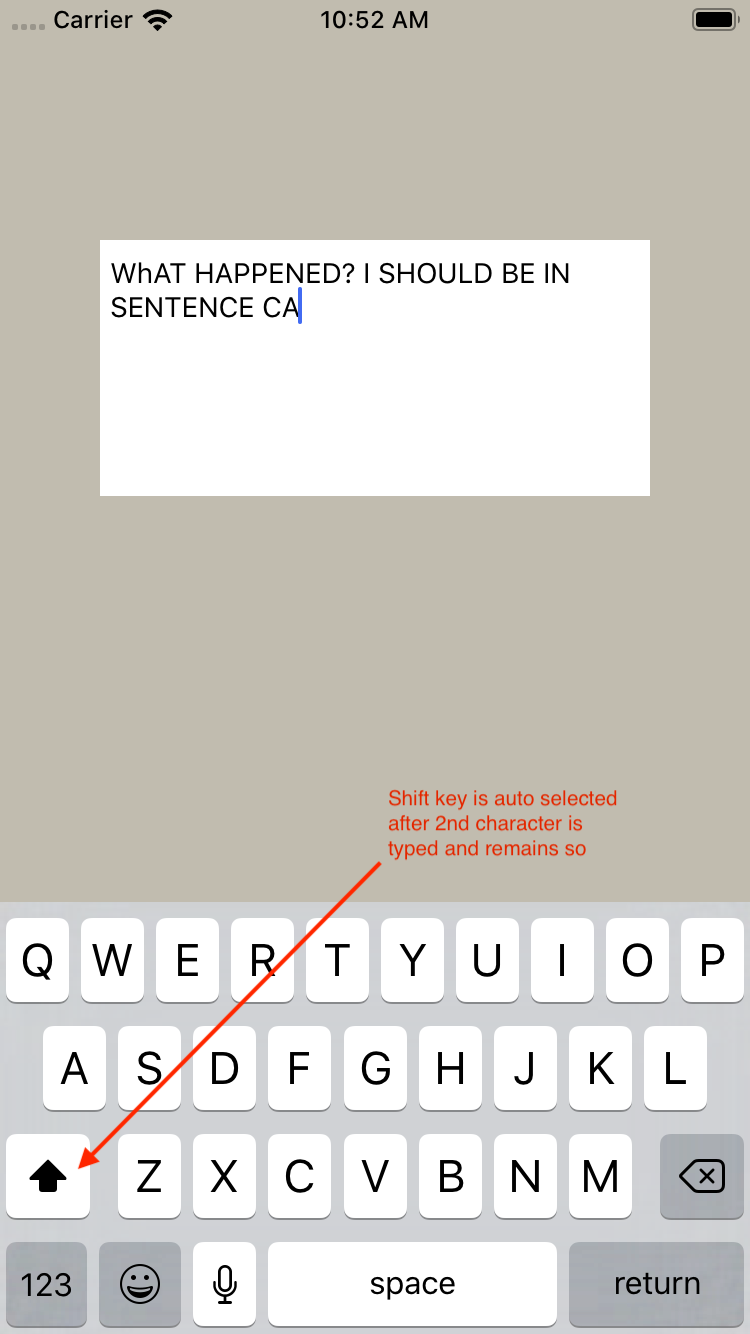I am seeing a strange issue with UITextView in latest iOS versions. As per my current understanding, it is only occurring in iOS 13. One of my users reported this on iOS 12.4.1, though I am unable to reproduce this on any pre iOS 13 devices.
I have created a small sample project in Xcode 11 to explain the issue. The project is targeting iOS 13. I am testing on an iPhone 8 running iOS 13.1.2 (17A860). The project contains a simple view controller with a textview. The TextView has autoCapitalizationType as "Sentences". Then I implemented the delegate method shouldChangeTextInRange method. See the code below
class ViewController: UIViewController {
@IBOutlet weak var textView: UITextView!
override func viewDidLoad() {
super.viewDidLoad()
self.textView.delegate = self
self.textView.autocapitalizationType = .sentences
}
}
extension ViewController: UITextViewDelegate {
func textView(_ textView: UITextView, shouldChangeTextIn range: NSRange,
replacementText text: String) -> Bool {
//I wanted to do some other modifications here, but for now just
//setting the user typed text manually and returning false
if let oldString = textView.text {
let newString = oldString.replacingCharacters(in: Range(range, in: oldString)!,
with: text)
textView.text = newString
}
return false
}
}
This is the whole code, except the storyboard and other project files. As you can see above, I am just setting the exact same text entered by the user into the textview manually, and then return false. But when I type, the first character gets added in caps as it should. The second character correctly gets added in small letter. From third character onwards everything is in caps. Moreover, the keyboard shift button automatically getting selected after each character is typed. A screenshot is attached.
Some other important points.
- This issue is happening only if autocapitalizationType is "sentences", not for other values like "words", "none".
- I tried to set autocapitalizationType in code and in storyboard, with same results.
- If I don't implement shouldChangeTextInRange method, issue is not reproduced. If I return true from this method, issue is not reproduced. Since I need to do some processing in this method, I need to return false.
- Yet to reproduce by myself on a pre iOS 13 device, though a user reported this on iOS 12.4.1 (unverified for now).
Can anyone suggest a fix/workaround for this issue?

